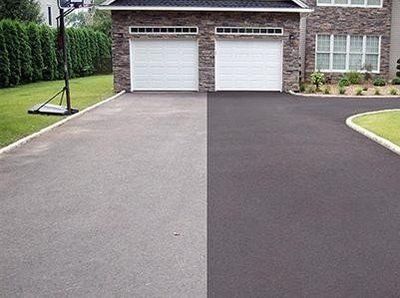Hot Mix Asphalt: A Sustainable Solution for Sidewalk
Hot Mix Asphalt (HMA) has actually emerged as a leading sustainable selection for sidewalk services, supplying a myriad of ecological benefits and cutting-edge modern technologies. As the demand for environmentally friendly building and construction methods grows, discovering the nuances of HMA's sustainability can provide useful insights into the future of pavement solutions.
Environmental Benefits of Warm Mix Asphalt

Moreover, Warm Mix Asphalt assists to mitigate urban warmth island impacts. Its dark shade soaks up sunshine, decreasing the quantity of heat showed back right into the atmosphere compared to lighter-colored sidewalks. This can decrease ambient temperatures in metropolitan areas, reducing the demand for a/c and inevitably reducing power consumption.
Additionally, Warm Mix Asphalt adds to enhanced stormwater administration. Its permeable nature enables water to reenergize and penetrate the sidewalk groundwater products, decreasing runoff and the threat of flooding. These environmental advantages make Hot Mix Asphalt a lasting choice for paving freeways and roads.
Power Performance in HMA Manufacturing
Is energy performance a critical factor in the manufacturing of Warm Mix Asphalt (HMA)? Definitely. Power plays a substantial duty in the production of HMA, affecting both cost and ecological sustainability. One essential facet of energy performance in HMA manufacturing is the usage of warm mix asphalt (WMA) modern technologies (commercial parking lot paving). WMA enables the mixing and placement of asphalt at reduced temperatures contrasted to standard warm mix asphalt, causing minimized energy usage throughout production. This process not only decreases gas use yet likewise lowers greenhouse gas exhausts, making it a more eco pleasant alternative.
Additionally, improvements in plant technologies have actually led to even more energy-efficient HMA production procedures. By maximizing energy use in HMA manufacturing, the industry can minimize its carbon impact while maintaining top notch pavement materials.
Recyclability of Warm Mix Asphalt
The recyclability of Warm Mix Asphalt (HMA) is a pivotal aspect of its sustainability and lasting environmental effect. HMA is among one of the most recycled products in the United States, with over 100 million bunches of reclaimed asphalt pavement (RAP) being reused each year in brand-new pavement building and construction. Recycling HMA provides a number of ecological advantages, such as minimizing the requirement for virgin products, decreasing energy consumption during production, and reducing the amount of waste sent to landfills.
The process of recycling HMA includes grating web the existing pavement, crushing it into smaller items, and mixing it with new aggregate and asphalt binder to produce a recycled mix. This recycled mix can often carry out in addition to or perhaps much better than standard HMA, while calling for fewer basic materials and producing reduced greenhouse gas emissions. By including RAP into brand-new sidewalk tasks, roadway firms can preserve all-natural sources, minimize expenses, and reduce the ecological footprint of road construction and upkeep activities. Overall, the recyclability of HMA plays a substantial role in advertising lasting techniques within the sidewalk market.

Long-Term Efficiency of HMA
Asphalt pavements show sturdiness and strength over an extensive period, reflecting the long-lasting performance of Hot Mix Asphalt (HMA) In addition, developments in HMA modern technology, such as the usage of polymer-modified binders and cozy mix look these up asphalt, have actually further enhanced the sturdiness and long life of HMA pavements. By focusing on quality building and maintenance techniques, HMA proceeds to verify itself as a sustainable and cost-effective solution for long-lasting sidewalk framework.

HMA: Sturdiness and Sustainability
Demonstrating both durability and sustainability, Warm Mix Asphalt (HMA) has come to be a keystone in the building of durable sidewalk infrastructures - regrading. HMA's resilience comes from its capability to hold up against heavy lots, severe weather, and high web traffic volumes, making it a reputable selection for roadways, highways, and flight terminal runways. The structure of HMA, which generally consists of accumulations, binder, and filler, plays a critical duty in improving its durability and resistance to damage
In addition, HMA's sustainability depends on its recyclability and energy-efficient manufacturing process. The capacity to recycle reclaimed asphalt sidewalk (RAP) in brand-new HMA blends reduces the need for virgin materials and decreases the ecological influence of pavement construction and upkeep. Additionally, the energy efficiency of generating HMA exists in its lower mixing temperatures compared to various other pavement materials, resulting in decreased energy consumption and greenhouse gas discharges.
Final Thought
In final thought, hot mix asphalt (HMA) supplies a lasting option for pavement with its ecologically pleasant qualities. HMA's recyclability, energy efficiency in manufacturing, and long-term resilience make it an eco-friendly choice for road building and construction.
HMA is one of the most recycled materials in the United States, with over 100 million bunches of reclaimed original site asphalt pavement (RAP) being reused yearly in new sidewalk building.The procedure of recycling HMA entails crushing the existing sidewalk, squashing it right into smaller sized items, and mixing it with brand-new aggregate and asphalt binder to develop a recycled mix.Asphalt sidewalks demonstrate resilience and durability over an extended duration, mirroring the long-lasting efficiency of Warm Mix Asphalt (HMA) Additionally, improvements in HMA innovation, such as the use of polymer-modified binders and warm mix asphalt, have even more boosted the toughness and longevity of HMA pavements. The capacity to recycle redeemed asphalt sidewalk (RAP) in new HMA blends reduces the demand for virgin products and minimizes the environmental impact of pavement construction and maintenance.